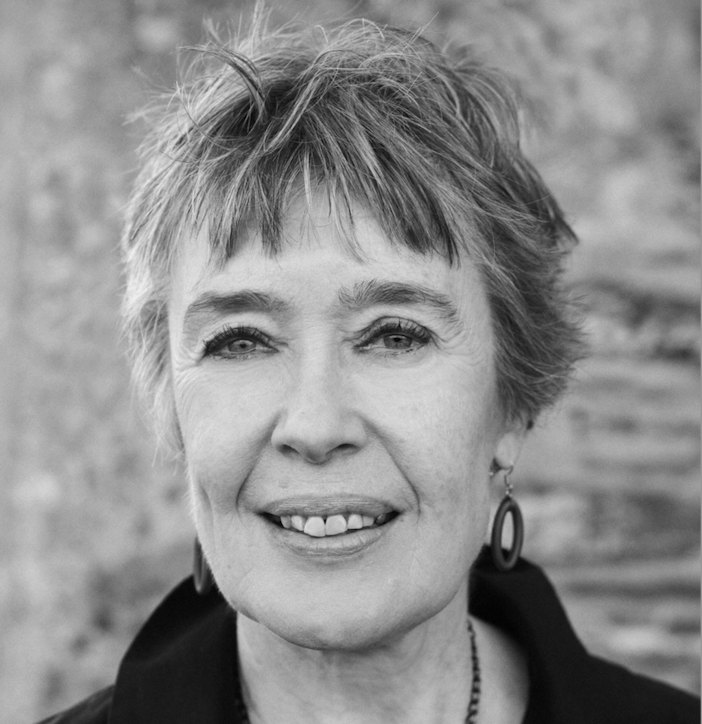If you’ve ever wondered why you are here, how we know what we know, or why there is something rather than nothing – fear not. History’s greatest philosophers are here to help.
What’s it all about? Who or what am I? How I can know that I actually know anything in the first place?
These are the questions that first puzzled the Greek olive merchant Thales and his successors more than two thousand years ago – and remain open even today.
Jane O’Grady is an expert in making these profound ideas accessible without dumbing down. She has taught philosophy at universities and to the public for decades, and written acclaimed books and widely read articles for both academic audiences and the public.
Now she joins How To Academy to lead us through the biggest ideas in the history of philosophy: from Plato’s famous Republic through to Nietzsche’s anticipation of our own ‘post-truth’ age.
This six-part livestream course will take us from ancient Greece, where the big questions of Western philosophy were first formulated, through to the Enlightenment – where many of the principles we take for granted in the modern world were first proposed – and through to the birth of the modern era.
Dividing our attention equally between the nature of the self and how to organise a society, we will look at pivotal figures in the history of philosophy – just a few of the giants on whose shoulders we climb. It’s true that ‘there is nothing so stupid that some philosopher hasn’t thought it’, but it is largely thanks to their thinking that our civilisation, for good or ill, is what it has been and is.
This course takes place online between 3-5pm every fortnight from the 12th January. A replay video is available for any sessions you miss. No advanced reading is required.
The Programme
Weeks 1 and 2: Classical Philosophy
PLATO (428 – 348 BCE)
In each of us, according to Plato, reason struggles with the appetites, and our energies side with one or the other. He was probably the first person to chart the conflicted self, and to try and explain how it is that we can apply a common name to a whole variety of things (dogs, for instance). However farfetched his explanation of, it is beautiful and has been hugely influential. So too have been his ideas about knowledge, virtue, love and politics – or rather, perhaps, those of Socrates, who never wrote a word but is the key figure in each of Plato’s dialogues. Plato’s (or Socrates’?) ideal republic sounds horribly authoritarian, however.
ARISTOTLE (384 – 322 BCE)
As far as we know, Aristotle was the first scientist—dissecting and classifying the creatures on Lesbos, trying to explain how they reproduced and survived. Our notions of ‘energy’, ‘dynamic’, ‘potential’, ‘species’, ‘genus’, and many others, are owed to him. As well as categorising and expounding biology, zoology, cosmology and meteorology, he deployed the same astute observational skills in analysing politics, ethics, psychology, emotion, tragedy, maths, rhetoric, natural law and many other topics. He articulated the principles of logic that we still have, and of classification itself.
Weeks 3, 4, and 5: Enlightenment Philosophy
RENÉ DESCARTES (1596 – 1650)
‘I think therefore I am’ is the most famous statement in philosophy. In the 17th century, Descartes, who is often called ‘the father of modern philosophy’, established the starting point of enquiry as the individual, sceptical self. What that is, he argued, is essentially an immaterial mind in a body. He was in fact a great mathematician – he invented the graph – and at the forefront of optics, and his mind/body dualism was only part of his attempt at rendering a coherent scientific account of reality. And although Cartesian dualism is currently much contested, belief in it is proving very hard to dislodge.
JOHN LOCKE (1632 – 1704)
Locke, whose father fought on the Parliamentarian side in the English Civil War, is often called the father of liberalism. But he wasn’t ideally liberal himself, and the charter he helped write for the American state of Carolina contained clauses sanctioning slavery. Still, his treatises against the divine right of kings, and in favour of toleration, were certainly liberating. Also, he set the agenda for discussions of how far an individual remains the same person over time, and for the theory that we only perceive things indirectly by having sensory impressions of them in our minds.
DAVID HUME (1711 – 1776)
If we seek to find a self, said Hume, we will find no impression of one, only a bundle of perceptions, feelings, sensations and thoughts. Yet he also argued that our emotions always have reference to our sense of self – he was a paradoxical thinker. He saw humans less as beings of transcendent reason than as creatures ruled by instinct and custom. A great influence on Darwin, he also anticipated Freud and cognitive science – arguing that our thoughts are marshalled and moved by mental forces we are unaware of. His theory of morality was naturalistic too, holding that ultimately it is our visceral ability to sense and participate in other people’s feelings that prompts our moral behaviour.
Week 6: Philosophy at the Beginning of Modernity
FRIEDRICH NIETZSCHE (1844 – 1900)
‘I am dynamite’, said Nietzsche; he wanted to ‘philosophise with a hammer’. God, morality, the self, free will, language, are some of the things he demolished. The unsavouriness of his politics has been exaggerated, but also whitewashed. He lamented that what the aristocracy of the ancient world had extolled as good – ruthless self-affirmation – had been declared bad by ‘the herd’ and replaced with the Judeo-Christian ‘slave morality’ that lauded compassion. He celebrated Dionysian wildness. But though renowned for questioning the value of truth and truthfulness, he adamantly struggled for it ‘every step of the way’. And he dreaded the 20th century nihilism that he predicted.






